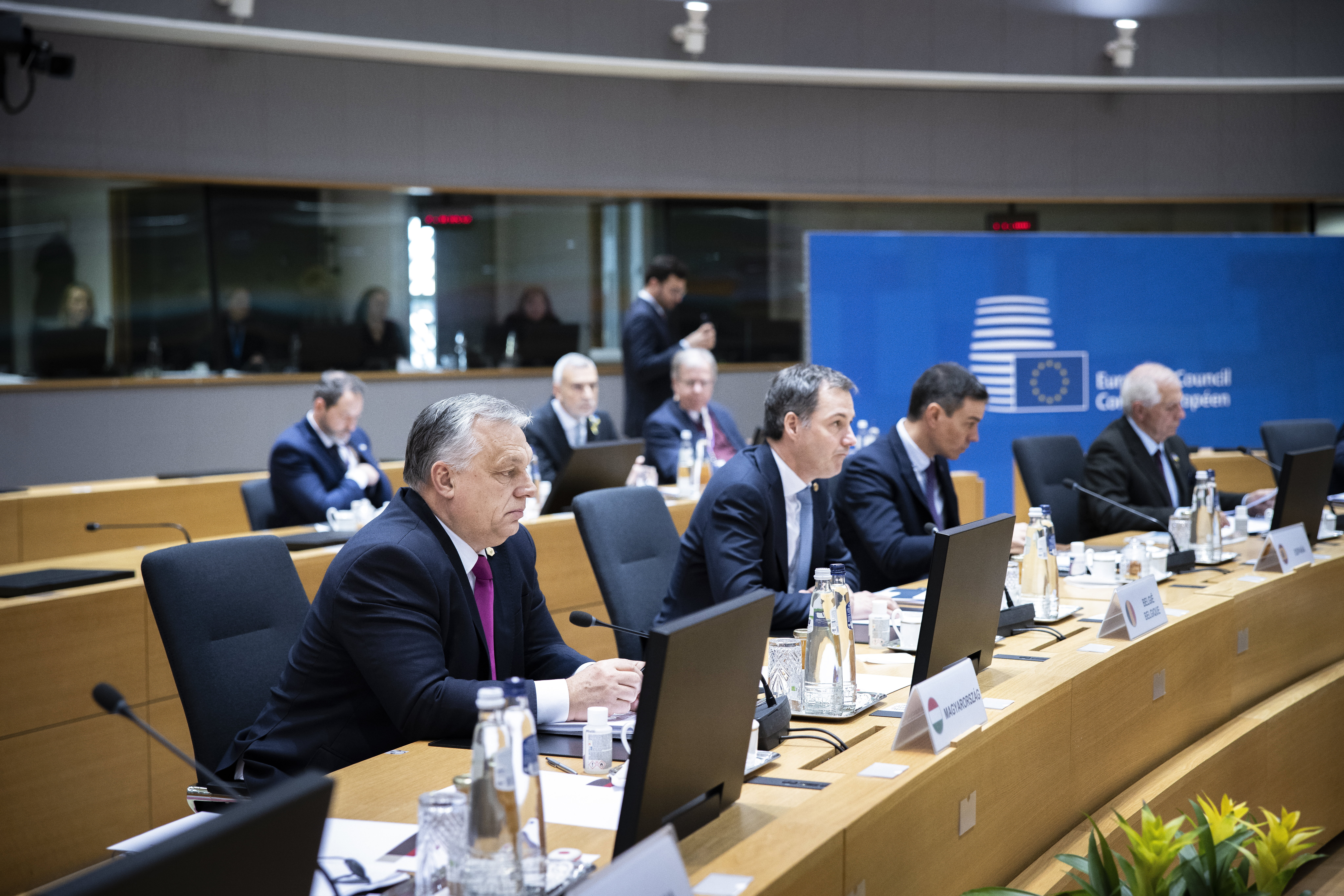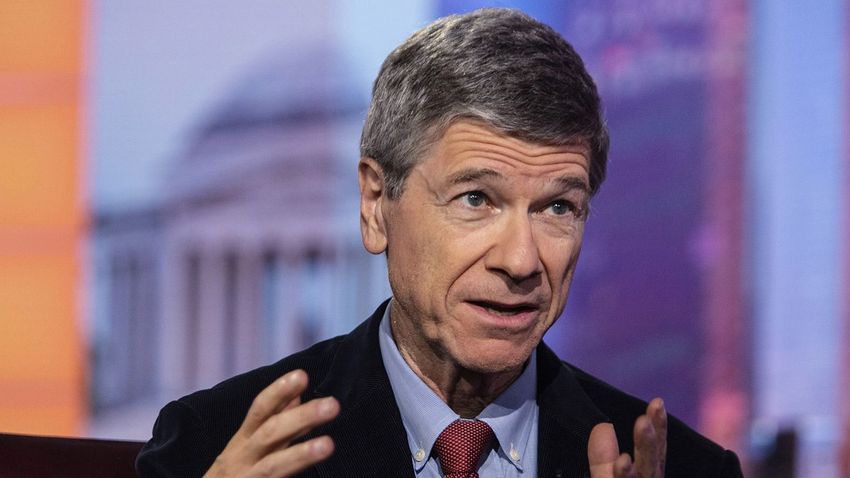
Sachs calls PM Orban only leader with realistic view of Ukraine's situation
World-renowned economist Jeffrey Sachs has said PM Orban is the only European leaser who understands that this war was unnecessary, it is provoked by NATO enlargement, and as long as the war continues, it is a tragedy and dead-end for Ukraine. He added that unlike the other European leaders, PM Orban recognises that Russia will not accept defeat on the battlefield, at least not without escalating to nuclear war.
The fIashpoint was the idea of Ukraine’s NATO accession
Without question this war could have been avoided. US diplomats warned Presidents from Clinton onward against NATO enlargement to Ukraine and Georgia. As late as December, 2021, Russia put forward proposals to avoid the war in a Draft US-Russia Treaty on Security Guarantees. At the core of the draft treaty was an end to NATO enlargement, US economist Jeffrey Sachs told Hungarian daily Magyar Nemzet. Mr Sachs is currently professor at Columbia University. Formerly, he was a Special Development Goals Advocate for the UN secretary general, and he also worked as an adviser to the governments of Latin American and Eastern European countries and the former Soviet Union.
There were other issues raised by Russia, involving the placement of troops and military bases, and the deployment of nuclear weapons. These too merited negotiations, though the US clearly would not have accepted some of Russia’s draft proposals, Sachs recalled in the interview.
The bottom line for Russia was US respect for Russia’s national security, which was threatened in Russia’s realistic view, by NATO enlargement. Unfortunately, and unwisely, the US refused to negotiate over NATO enlargement. NATO policy holds that no third country, meaning Russia, can interfere with NATO enlargement. That is an arrogant position that definitely contributed to this war.
Russia will never accept NATO enlargement to Ukraine. Either it will defeat Ukraine outright on the battlefield, or it will continue fighting a long war of attrition, or it will escalate to nuclear weapons if threatened with military defeat. In short, there is no realistic path to NATO enlargement to Ukraine, the expert added.
Six principles for peace
Long-lasting peace could be built on the following six principles. First, the US would make clear that NATO will not enlarge to Ukraine and Georgia. Second, Ukraine would declare its neutrality. Third, the UN Security Council plus other countries (including possibly Germany, Turkey, Brazil, and perhaps Hungary) would co-guarantee the peace arrangements. Fourth, there would be strict limits on Ukraine’s rearmament by NATO countries. Fifth, Ukraine would be given a clear timeline to EU membership, but as a neutral non-NATO country (e.g., such as Austria). Sixth, sanctions against Russia would be removed, and trade between Russia and the European Union would be restored. Of course, we are nowhere near this kind of arrangement, but it is not impossible.
Such a settlement, while seemingly impossible today, would be in the interests of the EU, Ukraine, and Russia. Such agreement would most likely be phased in over a prolonged period, on a step-by-step basis.

Zelensky’s peace formula is not a real peace formula. It is basically a formula of Russian defeat. As he said:
It is for “narrative” purposes only, not for a real peace settlement. That is a shame. Ukraine is the greatest victim by far of the failure of negotiations. Ukrainian leaders should be the first to be looking for a negotiated peace deal to end the killing and destruction.
Hungarian PM is the only the European politician with a realistic view
Prime Minister Orban is just about the only European government leader who is making sense right now about Ukraine, Professor Sachs said. PM Orban understands that this war was unnecessary, provoked by NATO enlargement, and a tragedy and dead-end for Ukraine as long as the war continues. He recognises, unlike the other European leaders, that Russia will not accept defeat on the battlefield, at least not without escalating to nuclear war.
US is fighting for the appearance of US hegemony
The US government is fighting for US hegemony even though there is no longer any realistic prospect of US dominance globally. The rise of the BRICS (Brazil, Russia, India, China, and South Africa) and of course especially of China and India, has fundamentally changed geopolitics.
We are already in a multi-polar world, but US politicians don’t yet get that. They are stuck in a mindset that is roughly 30 years in the past. We should remember that the US is only 4.1% of the world population, at a time when many giants – China, India, Indonesia, Brazil, Pakistan, and others – don’t want US hegemony and are becoming technological and manufacturing powerhouses, not to mention nuclear powers.
The US should accept multi-polarity, abide by the UN Charter, help to fight the global environmental catastrophe threatening the planet, and face up to the huge inequalities undermining the quality of life in the US, Mr Sachs thinks. US life expectancy has declined to the levels not seen since the 1990s, because of poverty, inequality, obesity, drug addiction, violence, and many other social problems. The US needs to stop pretending to run the world and start solving its many very serious internal problems, Mr Sachs said.
Russia is not a permanent enemy
Russia is certainly not a permanent enemy, Mr Sachs said in summary. Russia helped its European allies to defeat Napoleon, Prussian militarism in WWI, and of course, Naziism in WWII. Russia is a country of great culture and science. Of course, Europe should aim and plan to re-establish normal relations with Russia. And Europe of course should stop the double-standards and triple-standards.
The US has launched more wars of choice than any other country in recent history. Does the EU still deal with the US? Yes, of course. Should it plan to deal with Russia once again? Yes, of course,
Jeffrey Sachs concluded.
Tags:

